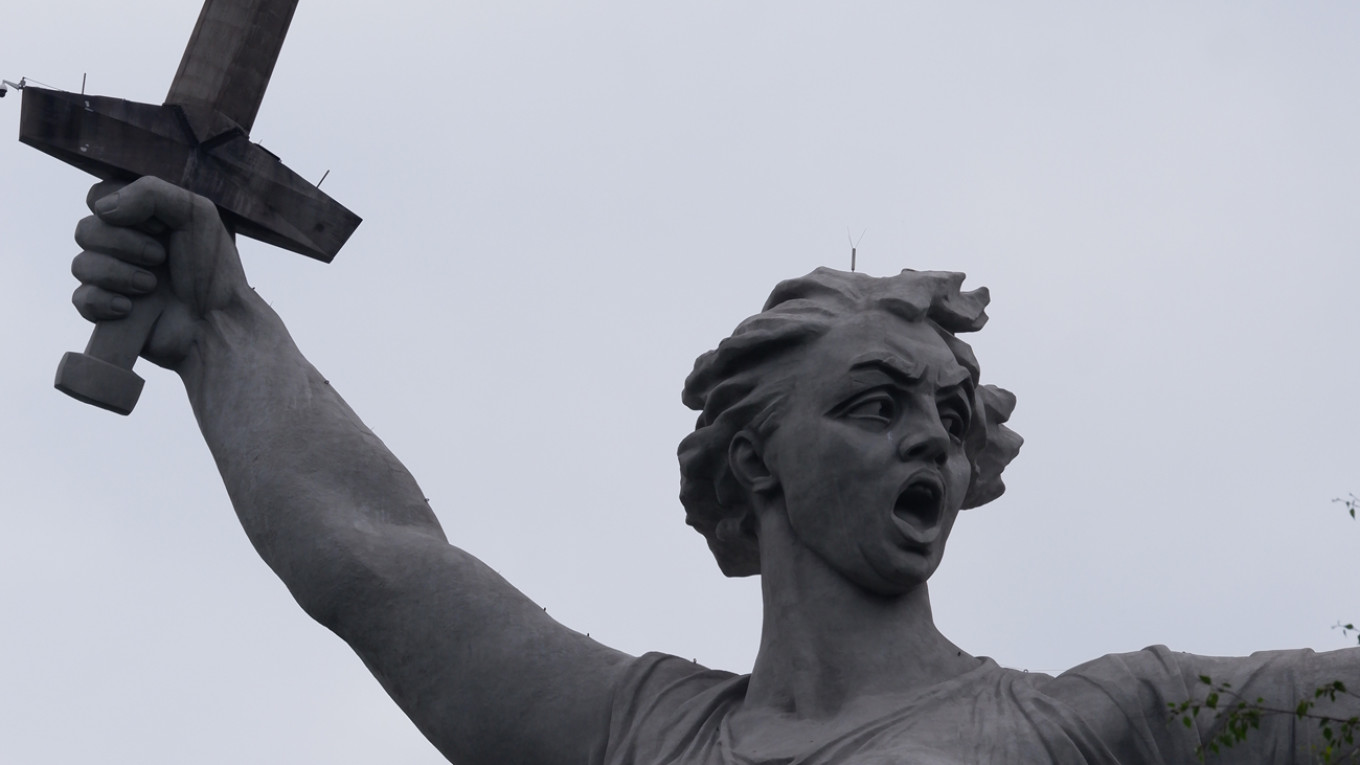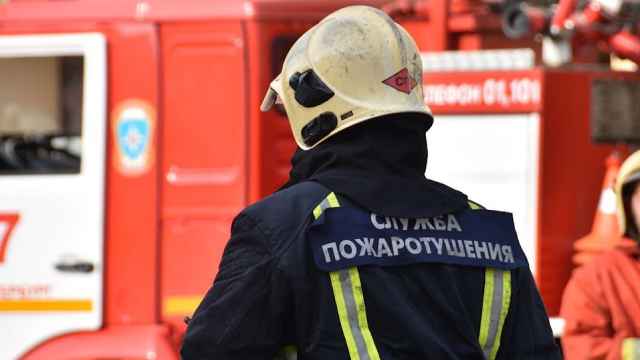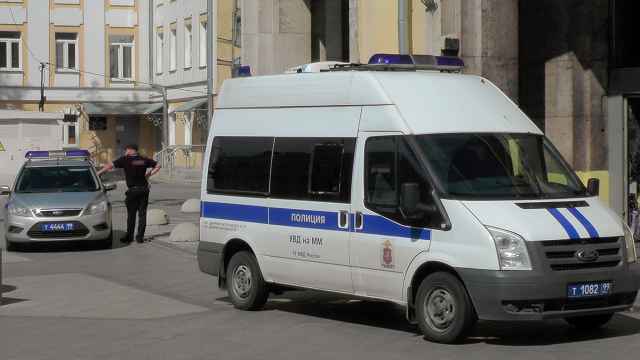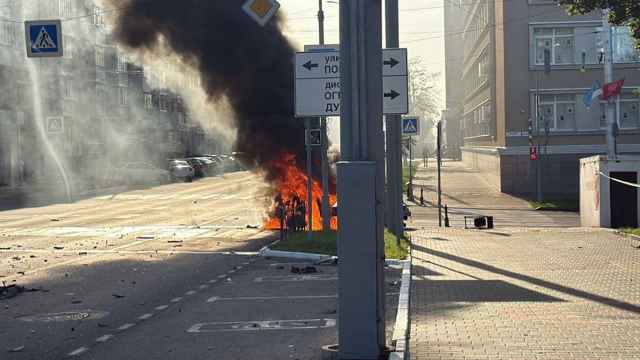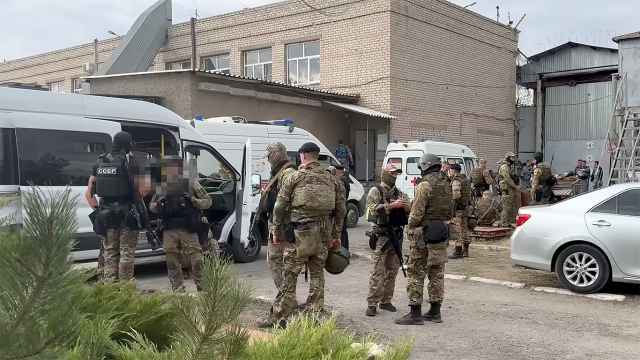The chancellor of Moscow’s State Academy of Physical Education died inside the head of the towering Motherland Calls World War II memorial in southern Russia’s Volgograd region, local media reported Thursday.
Nikolai Chesnokov, 68, fell ill during an excursion inside the 85-meter (279-foot) statue, according to the news outlet V1.ru, which cited unnamed sources. He was reportedly accompanied by colleagues who attempted but failed to resuscitate him.
The Telegram news channel Baza, which has purported links to Russian security services, claimed the visit inside the monument had not been authorized. Baza described the interior of the statue’s head as a small room with a wooden floor and a bench, accessible by a hatch.
Investigators launched a preliminary investigation into Chesnokov’s death but said there were no signs of foul play.
Chesnokov was in Volgograd to take part in a nationwide university sports festival, media reported. He was said to have laid flowers at an eternal flame near the Motherland Calls before entering the monument.
The Motherland Calls stands at Mamayev Kurgan, the site of the Battle of Stalingrad — the bloodiest battle of World War II — where Soviet forces repelled Nazi Germany’s advance at the cost of more than 1 million casualties.
Volgograd was known as Stalingrad during the war. In the lead-up to this year’s Victory Day, marking 80 years since the end of the war, public calls intensified for President Vladimir Putin to formally restore the city’s Soviet-era name in honor of Josef Stalin.
Authorities have temporarily revived the name Stalingrad during national holidays and military commemorations in recent years.
A Message from The Moscow Times:
Dear readers,
We are facing unprecedented challenges. Russia's Prosecutor General's Office has designated The Moscow Times as an "undesirable" organization, criminalizing our work and putting our staff at risk of prosecution. This follows our earlier unjust labeling as a "foreign agent."
These actions are direct attempts to silence independent journalism in Russia. The authorities claim our work "discredits the decisions of the Russian leadership." We see things differently: we strive to provide accurate, unbiased reporting on Russia.
We, the journalists of The Moscow Times, refuse to be silenced. But to continue our work, we need your help.
Your support, no matter how small, makes a world of difference. If you can, please support us monthly starting from just $2. It's quick to set up, and every contribution makes a significant impact.
By supporting The Moscow Times, you're defending open, independent journalism in the face of repression. Thank you for standing with us.
Remind me later.


